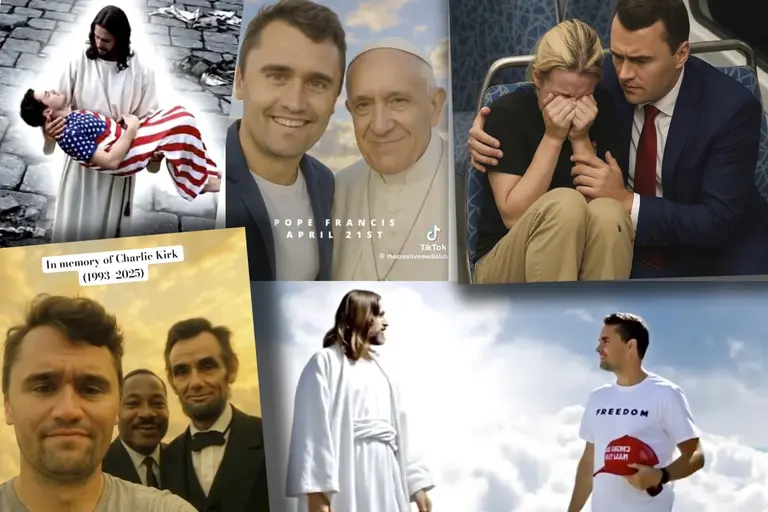Worshippers at Prestonwood Baptist Church in Plano, Texas, were left stunned last weekend when Pastor Jack Graham played what sounded like a posthumous message from conservative activist Charlie Kirk.
The clip, which urged listeners to “pick up your cross, and get back in the fight,” drew thunderous applause and even a standing ovation. But it wasn’t Kirk speaking from beyond the grave — it was an AI-cloned version of his voice, crafted from chatbot prompts.
Graham made clear before playing the audio that it was artificial. Even so, the moment went viral, echoing across other megachurches such as Dream City Church in Arizona and Awaken Church in California, where congregations reacted with similar fervour.
The clip is part of a wider flood of AI-generated content that surged within hours of Kirk’s killing. Supporters shared doctored videos and images of the Trump ally on platforms like Facebook, TikTok, and X. Many depicted him in overtly religious settings — embracing Jesus, walking in heaven with saints, or praying beneath scripture. Others portrayed him alongside assassinated figures such as Abraham Lincoln, Martin Luther King Jr., and John F. Kennedy.
Some of the AI creations carried political messages. One video showed Kirk comforting Iryna Zarutska, a Ukrainian refugee recently slain in North Carolina, while another depicted him in heaven proclaiming solidarity between the U.S. and Israel.
The phenomenon has split opinion. Critics blasted the digital resurrection as crass and misleading, while mourners say the AI tributes offer comfort, with one influencer even moved to tears by the fake voice.
What’s clear is that Kirk’s death has triggered not just grief, but a new form of online memorialisation: hyperreal, AI-generated reconstructions that blur the line between remembrance and fabrication.










